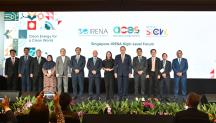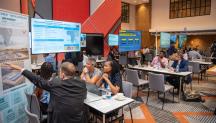

Discussions on Sustainable Aviation Take Place in Abu Dhabi
Newsletter
In context of ICAO’s annual Fuel Task Group meeting, IRENA hosts discussion on role of biofuels in aviation decarbonisation
Between 2013 and 2018 the number of air travellers increased by 38 per cent, and the International Air Transport Authority (IATA) expects annual passenger numbers to double to 8.2 billion by 2037. While this growth could support up to 100 million jobs over the next 20 years, it will also increase aviation carbon emissions. Finding a solution to the aviation sector’s emissions has become a global priority.
In 2009 the global aviation industry set a goal of carbon-neutral growth from 2020 onwards and aims to reduce net aviation carbon emissions by 50 per cent by 2050. However, it has been reported that global CO2 emissions from commercial flights are rising up to 70% faster than predicted. To tackle this challenge, the International Civil Aviation Organization (ICAO) is working to improve aircraft technology, enhance operations and reduce emissions through its Carbon Offsetting and Reduction Scheme for International Aviation, known as CORSIA, in which sustainable aviation fuels, like bio-based jet fuels, play a central role.
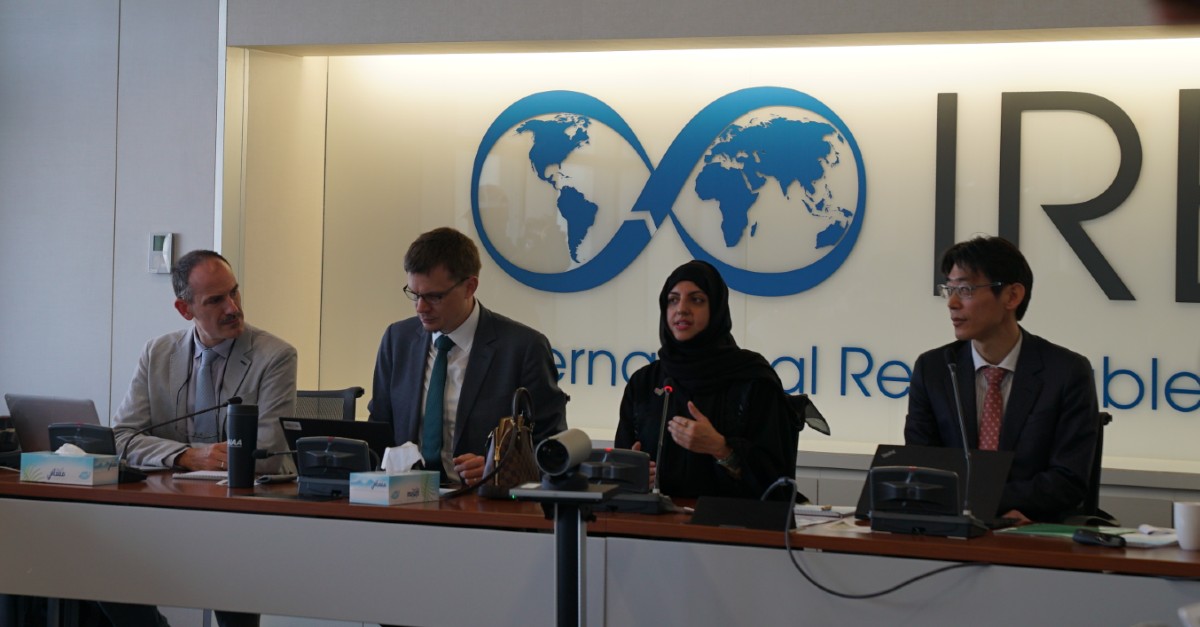
On 9 February, in the run-up to an annual meeting of ICAO’s Fuel Task Group (FTG), IRENA at its headquarters hosted the FTG for a workshop on sustainable aviation fuels — to exchange views on future decarbonisation pathways of the sector and discuss possible further collaboration activities between ICAO and IRENA.
In her welcome remarks at the workshop, Maryam Al Balooshi of the UAE General Civil Aviation Authority (GCAA) stated that the United Arab Emirates hosting ICAO’s annual meeting provides a good opportunity for enhancing regional awareness of the work of the ICAO’s FTG and strengthening collaboration with IRENA.
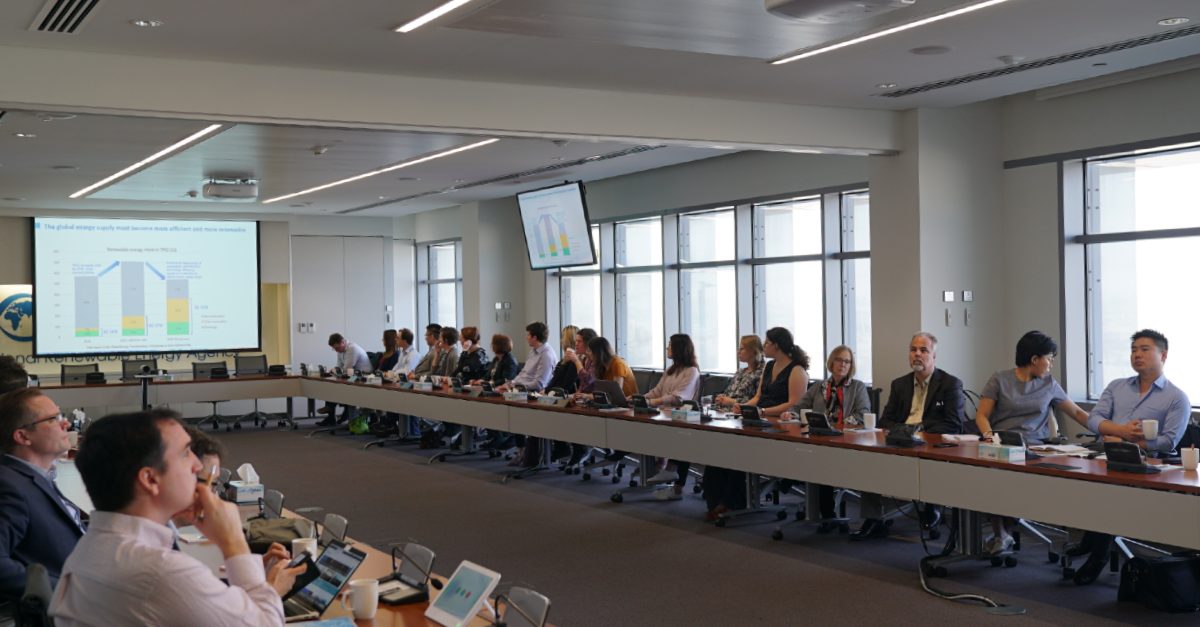
IRENA analysis shows that while decarbonising the transport sector calls for the use of several alternative fuels, biojet fuels will be essential to decarbonising the aviation sector, which cannot be fully electrified. However, fossil fuels are still cheaper than sustainable aviation fuels today, so conversion technologies are needed to diversify the range of feedstocks and reduce costs.
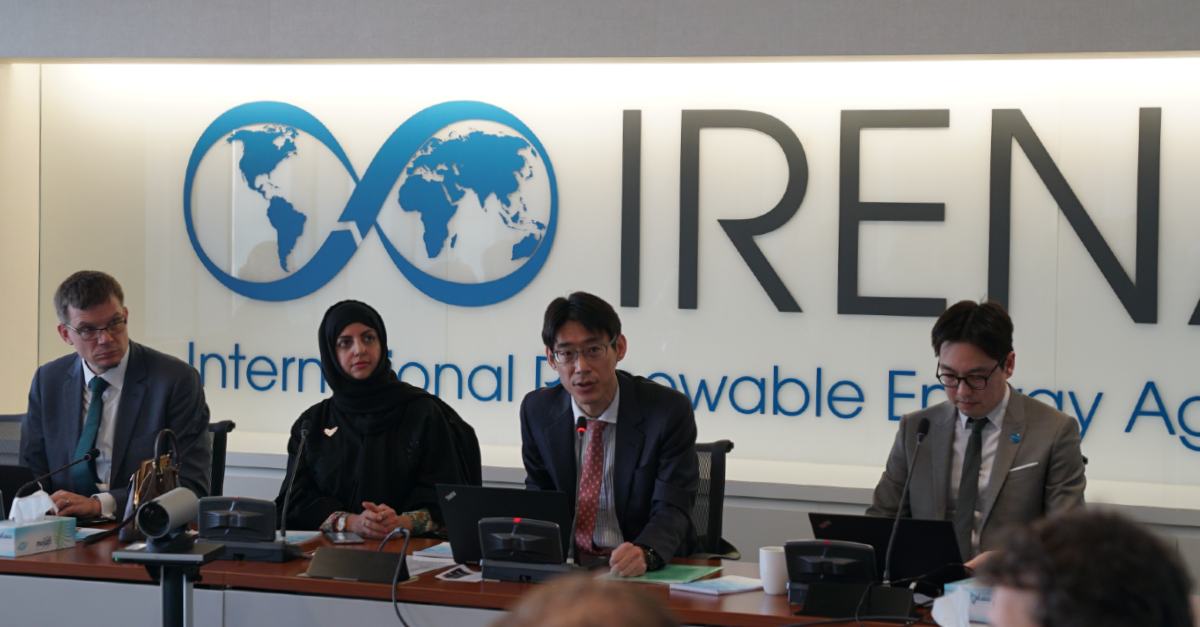
A recent IRENA study on what holds advanced biofuels back found that regulatory uncertainty stands out as the most important impediment to investment in advanced biofuels. However, at the meeting, Toshimasa Masuyama of IRENA stressed that accelerating deployment of advanced biofuels is possible if enabling environments are created, saying that, "The industry has reached and even exceeded the annual investment necessary to achieve a low-carbon transport sector pathway through biofuels in the past.” In addition to advanced biofuels, Seungwoo Kang of IRENA highlighted that e-fuels produced from renewable energy are critical to the decarbonisation of the aviation sector.
Speaking at the workshop, Jim Hileman, co-rapporteur of the ICAO’s FTG emphasised two key elements to meeting the sustainability criteria of aviation fuels: that aviation fuels need to provide at least a 10% reduction in greenhouse gas emissions on a life cycle basis; and that feedstocks for those fuels must not be sourced from converted land with high carbon stock.
This workshop was part of collaborative work between IRENA and ICAO, and further collaboration will be explored to ramp up their efforts.
